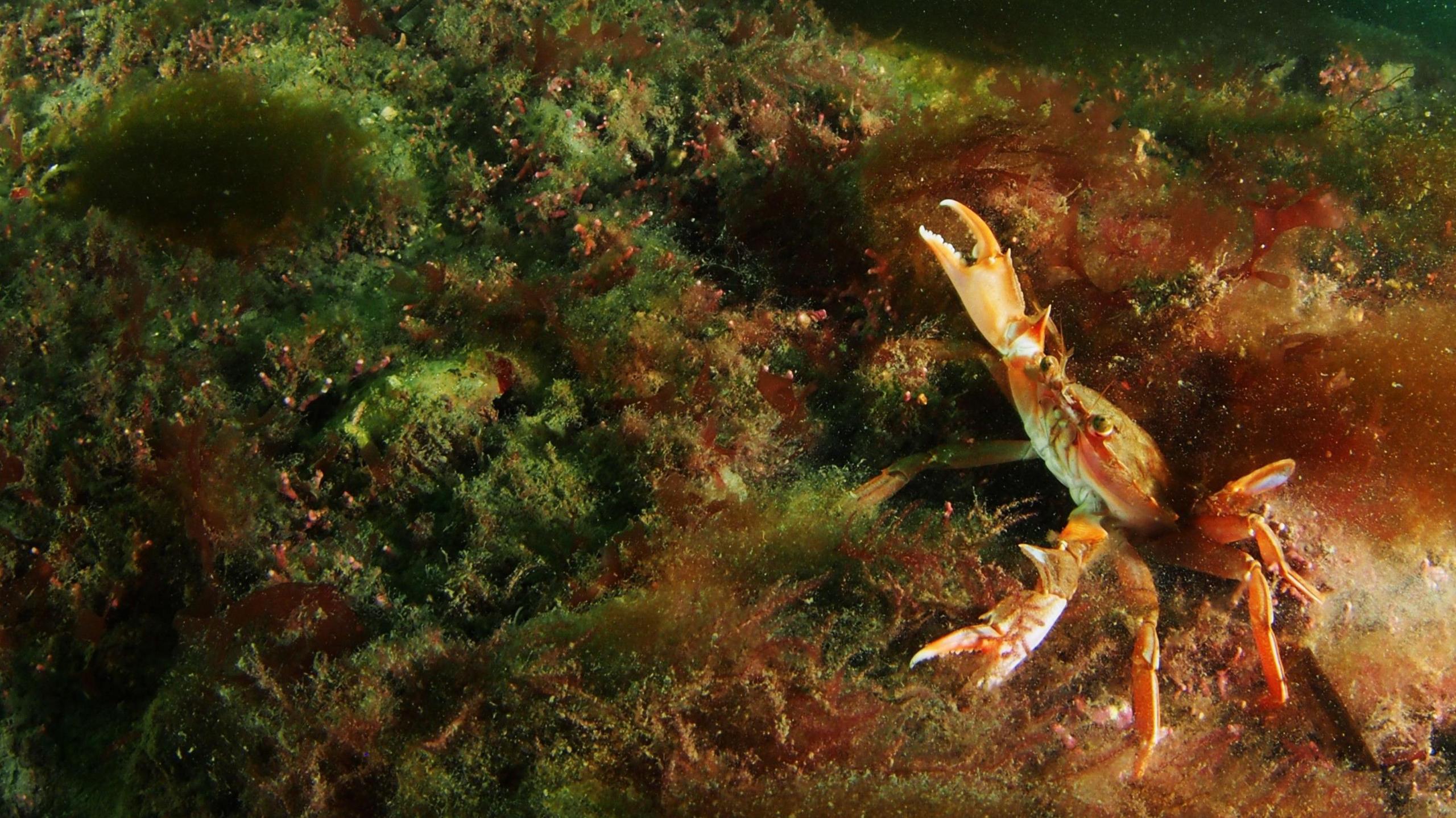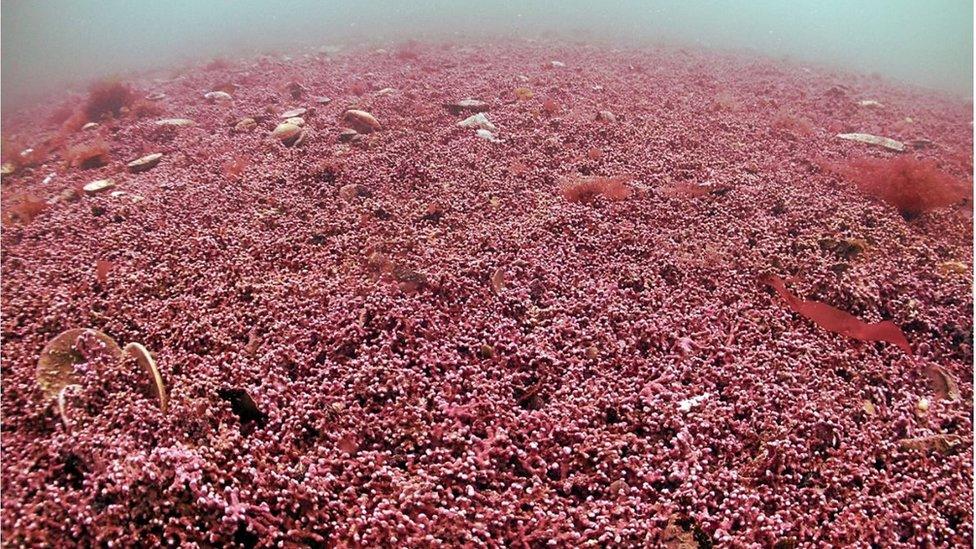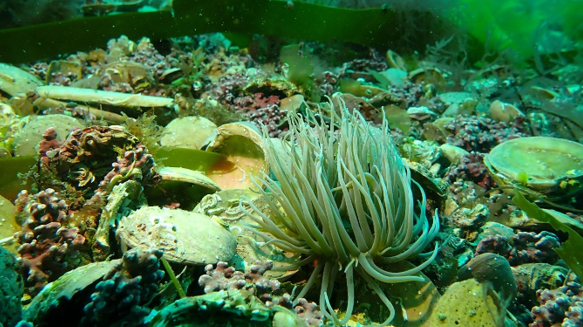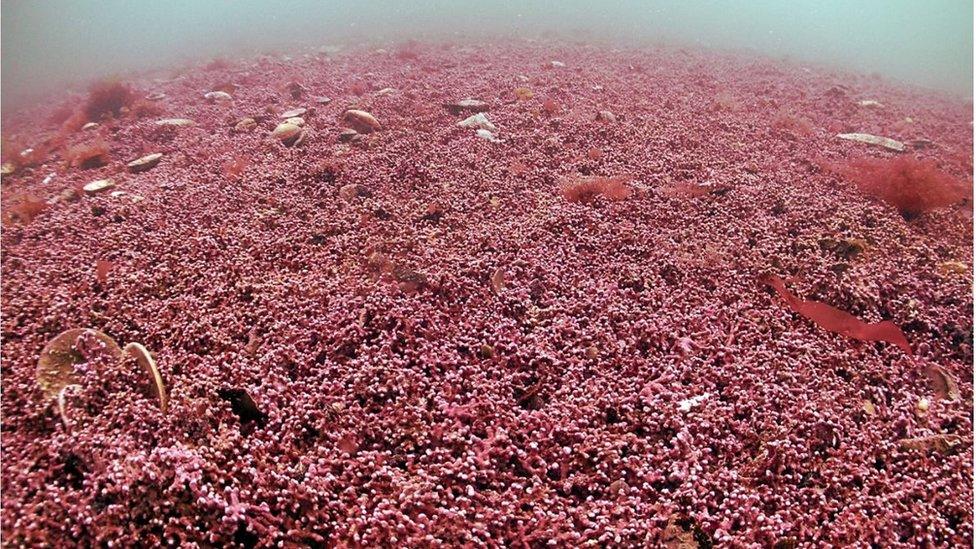Scientists 'shocked' by coral bed deterioration

Maerl beds consist of fragile, rare and slow-growing red calcified seaweed
- Published
Marine scientists and conservationists have expressed shock after finding ancient coral beds in Cornwall smothered in algae caused by sewage and run-off.
An organised dive to explore maerl beds as part of the UK Maerl Forum took place off St Mawes in April and revealed a "worrying deterioration" in the ecosystems, Cornwall Wildlife Trust said.
Maerl beds consist of fragile, rare and slow-growing red calcified seaweed which acts as a nursery for commercial fish and shellfish species, it added.
Matt Slater, a marine conservation officer at the trust, said it was "a massive concern" and improvement to the water quality in the Fal Estuary was needed urgently.
'Very sombre atmosphere'
Organised by Cornwall Council and Natural England, the forum aimed to increase collaboration and create an action plan for the protection of Cornwall's maerl bed.
Mr Slater said: "It was a shocking sight.
"The area, which was previously purple and beautiful, is now covered with a thick layer of brown, fluffy algae.
"We've surveyed here regularly for the past eight years and I have never seen the maerl beds looking like this.
"It was a very sombre atmosphere."
Cornwall Wildlife Trust said mobile fishing gear was damaging maerl beds, as well as a deterioration in water quality.
It added scallop dredges and beam trawls, which could destroy up to 70% of the live maerl nodules, were of "particular concern".
South West Water said it was working with the Environment Agency and Natural England to sample water quality in the Fal and Helford estuaries and reduce nutrient loads at wastewater treatment plants.
It aims to improve water quality by lowering phosphate levels in treated wastewater, the company said.
It also plans to reduce storm overflows, with improvements at 16 sites near the Fal Estuary by 2030, and fund Cornwall Wildlife Trust to enhance water quality around College and Argal reservoirs in Falmouth.
Mr Slater said: "Maerl grows so slowly. If you lose it, there's very little chance you'll be able to grow it back; certainly not within our lifetime."
Maerl beds, which also act as a vital carbon store, were recently classified as irreplaceable marine habitats by Natural England, Cornwall Wildlife Trust said.
The trust said it was working with farmers to reduce agricultural run-off and with fishers on sustainable management practises.
Follow BBC Cornwall on X, external, Facebook, external and Instagram, external. Send your story ideas to spotlight@bbc.co.uk, external.
- Published2 March 2024

- Published27 July 2024

- Published31 March 2021
